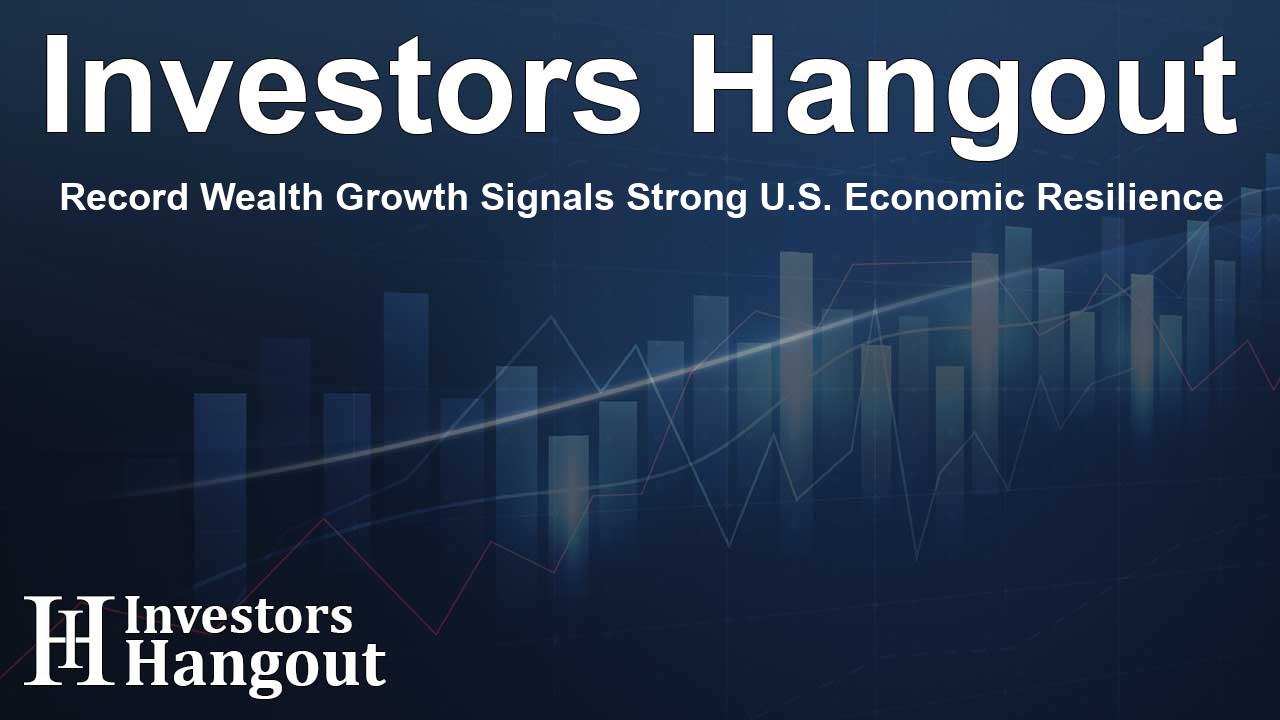Record Wealth Growth Signals Strong U.S. Economic Resilience

U.S. Households Achieve Unprecedented Wealth Levels
According to recent data from the Federal Reserve, Americans are currently at a financial high point, with total net worth reaching an incredible $163.8 trillion by the end of the second quarter. This remarkable increase has largely been driven by substantial rises in both real estate and stock market prices, highlighting the strength of the U.S. economy.
Breaking Down the Numbers Behind Wealth Growth
The statistics indicate a nearly 2% growth in net worth compared to the first quarter, mainly due to a thriving real estate market where property values have seen significant appreciation. A notable $1.8 trillion increase in real estate valuations, along with a $700 billion rise in stock values, has greatly contributed to this expansion. This upswing coincided with the stock market peaking in June, which reflects strong investor confidence across diverse sectors.
How the 'Wealth Effect' Influences Spending
The record-high net worth figures carry considerable implications. Economists believe that this wealth effect leads consumers to increase their spending, which in turn supports ongoing economic stability. When people feel their financial situation is improving, they tend to invest more in goods and services, thereby boosting overall economic activity.
Household Debt and Cash Reserves
Yet, this positive outlook is not without its challenges. Household debt has risen nearly 1% to hit $20.2 trillion, indicating that consumers are not just acquiring assets but also taking on greater liabilities. Additionally, there has been a slight decline in cash and cash-equivalent holdings, which now stand at $18.44 trillion. This suggests a possible shift in consumer behavior, with individuals perhaps opting to invest more aggressively in appreciating assets.
Consumer Confidence and Economic Indicators
Current economic activity seems strongly supported by high consumer confidence. Economist David Rosenberg pointed out that robust retail sales could directly stem from the increase in household net worth. When consumers feel secure in their finances, their spending habits tend to reflect that confidence, particularly in the retail sector.
Rising Wages Improve Financial Well-Being
Moreover, a recent report from the Census Bureau indicated a 4% rise in median household income in 2023, reaching a record high of $80,610. This marks the largest inflation-adjusted income increase since 2019, positively impacting overall household financial health.
A Promising Future for the U.S. Economy
Given these statistics, it’s clear that the landscape for American consumers is flourishing. With both net worth and income levels on the rise, the economic outlook is bright. American households appear well-equipped to navigate their financial journeys, supported by substantial cash savings and a growing array of assets.
Frequently Asked Questions
What’s behind the rise in Americans' net worth?
The surge in Americans' net worth is mostly due to significant increases in real estate values and gains in the stock market.
How does the 'wealth effect' impact consumer spending patterns?
The 'wealth effect' means that when people see their net worth increase, they often feel more secure and ready to spend, which helps stimulate the economy.
What are the latest trends regarding household debt?
Household debt has climbed to $20.2 trillion, showing that along with rising asset values, consumers are taking on more liabilities.
What does the Census report say about median household income?
The Census Bureau reported that there was a 4% increase in median household income for 2023, indicating an improvement in financial health for families.
How would you assess the current state of the U.S. economy?
The most recent data portrays a strong economic climate, with record wealth levels and increasing incomes suggesting a positive outlook for American consumers.
About The Author
Contact Dominic Sanders privately here. Or send an email with ATTN: Dominic Sanders as the subject to contact@investorshangout.com.
About Investors Hangout
Investors Hangout is a leading online stock forum for financial discussion and learning, offering a wide range of free tools and resources. It draws in traders of all levels, who exchange market knowledge, investigate trading tactics, and keep an eye on industry developments in real time. Featuring financial articles, stock message boards, quotes, charts, company profiles, and live news updates. Through cooperative learning and a wealth of informational resources, it helps users from novices creating their first portfolios to experts honing their techniques. Join Investors Hangout today: https://investorshangout.com/
The content of this article is based on factual, publicly available information and does not represent legal, financial, or investment advice. Investors Hangout does not offer financial advice, and the author is not a licensed financial advisor. Consult a qualified advisor before making any financial or investment decisions based on this article. This article should not be considered advice to purchase, sell, or hold any securities or other investments. If any of the material provided here is inaccurate, please contact us for corrections.
